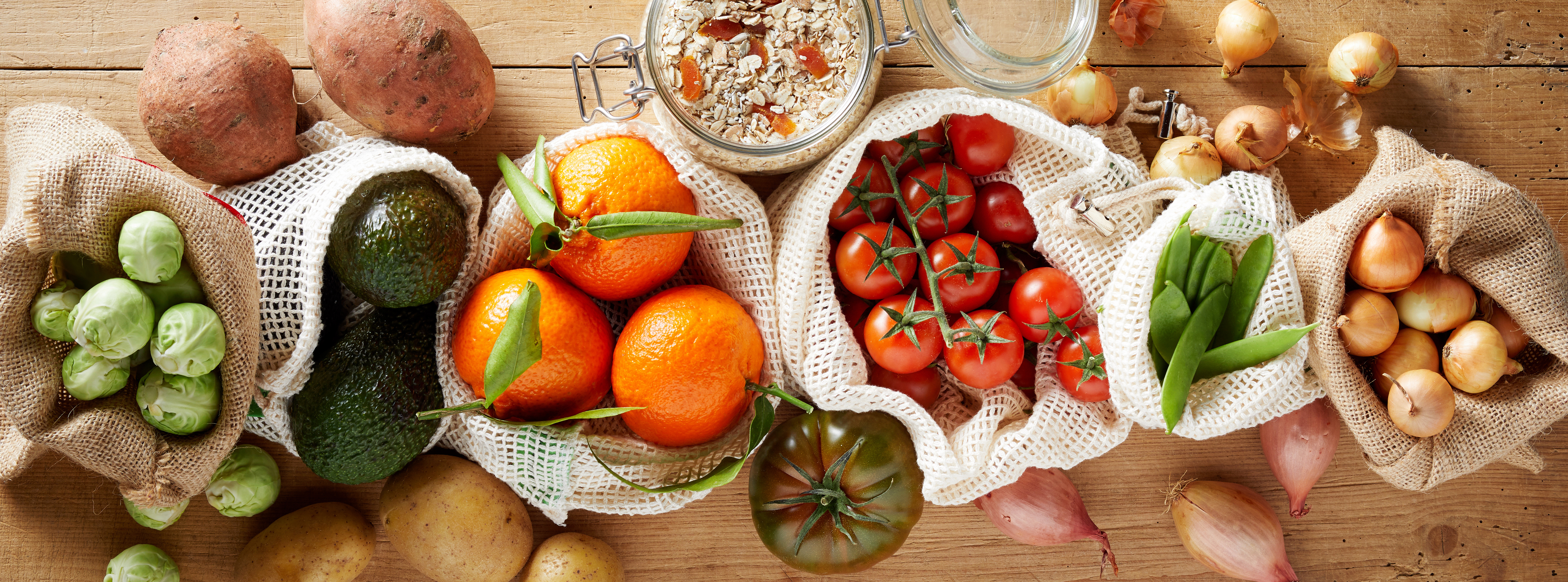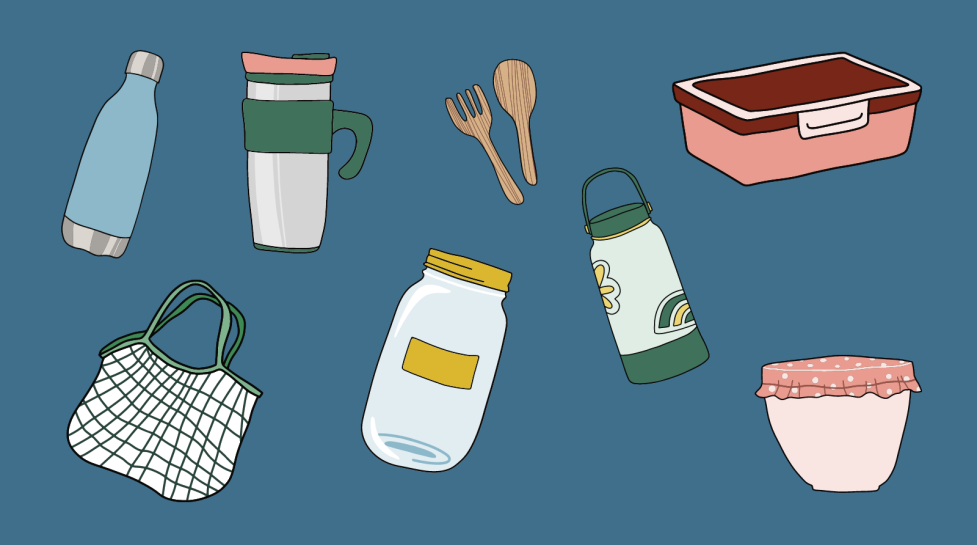Say goodbye to single-use plastic, one wrapper at a time.
Single-use plastics harm our planet and our health. They are also made from fossil fuels.
Single-use plastics are plastic items designed to be used only once before they are thrown away. Common examples include plastic bags, food wrappers, condiment packets and straws. These one-and-done plastics have severe, long-lasting environmental impacts, despite only being used for a few moments.
Single-use plastics:
- Pollute our planet. They find their way into our streets, rivers and oceans. This pollution is not only unsightly, but also harmful to wildlife. Animals can get tangled in plastic or mistake it for food, causing a whole range of health problems.
- Take hundreds of years to break down. Over time, larger plastics break down into smaller pieces called microplastics. Scientists are finding these tiny plastic particles everywhere – in the soils that grow our food, our drinking water and our bodies.
- Contribute to climate change. Plastics are made from oil and gas. On top of that, their entire lifecycle, from the extraction of fossil fuels to recycling, involves processes that release climate-warming greenhouse gas emissions. So, when you buy plastics, you are supporting the fossil fuel industry.
- Are hard to recycle. Many types of plastic are not recyclable, and ones that are require a lot of energy and resources to do so. Despite these challenges, please keep putting recyclable plastics in your blue bin. Recycling plastic saves natural resources and space in our landfills.
Avoiding plastic takes planning and practice, but small actions add up.
1. Start with a plastic inventory.
Make a quick list of single-use plastics you find around your home and in your trash: chip bags, shampoo tubes, plastic wrap, etc. The kitchen and bathroom tend to be plastic hot spots. Once you've got your list, start to plan
2. Try these everyday actions:
- Bring reusable shopping bags with you when running errands. Store them in a backpack, bike bag or car for easy access on the go. You will also save 10-cents for every single-use plastic and paper bag you avoid!
- Carry a set of reusable items. Stash utensils, travel mugs, napkins and leftover containers in a bag or backpack. That way, you'll have them with you on the go.
- Choose unpackaged goods. Use bar soaps and shampoos without packaging. Buy loose produce and see what you can buy in bulk. Many local grocery stores have a bulk section stocked with pasta, rice, snacks, dried fruit and other foods. Bring smaller reusable bags and containers to package your bulk buys.
- Decline receipts as much as possible. Some receipts are coated in a thin layer of plastic, which means they are not recyclable.
- Switch to reusable containers for snacks, lunches and leftovers. Cloth bags are great for trail mix and other dried foods, while glass, clear plastic and metal containers are better for leftovers and wet foods.
- Use cloth diapers instead of disposable ones.
- Get takeout in reusable containers.

Replace plastic produce bags for reusable cloth and mesh bags.
3. Help others go plastic-free.
Share these tips with family, friends and neighbors! You can also join Eco-Cycle’s network of more than 1,000 volunteers who help our community get on board with zero-waste solutions.
Looking for more tips?
Read through Eco-Cycle's How to Quit Plastics Workbook.
Going Beyond Recycling
Our city is committed to a future where we reduce the waste we create and then reuse, recycle and compost most of what we throw away. Saying no to single-use plastics, which may take hundreds or thousands of years to decompose, keeps our community cleaner for all to enjoy. But single-use plastics are just the beginning.

Moving beyond recycling and zero waste to focus on circularity
The city's vision is to create a circular local economy that keeps materials out of landfills and in use as much as possible. This growing area of work moves beyond recycling and composting to focus on preventing waste and pollution in the first place. It also explores innovative ways to curb our collective consumption through reuse and repair. Learn more on our Circular Boulder webpage.
Boulder's recycling gets recycled.
Our recycling system is not broken here in Boulder. It continues to save energy, emissions, water and money. In 2021, the city of Boulder recycled 25% of its waste. Learn more about our recycling system on Eco-Cycle's website.
